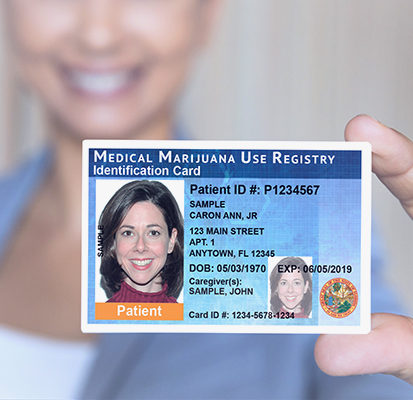Florida became the 22nd state to legalize medical cannabis in June of 2014 when Governor Rick Scott signed the Compassionate Medical Cannabis Act of 2014. Patients living with cancer, chronic pain, seizures, epilepsy, and more could benefit from the therapeutic effects of low-THC cannabis when prescribed by an authorized physician. To qualify, doctors and patients had to register with the Compassionate Use Registry maintained by the Florida Department of Health. Following the Compassionate Act of 2014, Governor Scott signed Senate Bill 1700. Senate Bill 1700 protects the privacy of physicians prescribing medical marijuana in low-THC doses and their patients who qualify.
In November of 2014, lawmakers placed The Florida Right to Medical Marijuana Initiative (Amendment 2) on the ballot. Amendment 2 was meant to grant access to more potent medical marijuana for terminally ill patients but failed to gain the required 60% majority of votes. The exposure of this defeat sparked a switch in public attitude concerning medicinal cannabis. In the 2016 Florida election, nearly 71% of voters approved the Florida Medical Marijuana Legalization Initiative, and the amendment was passed.
Conditions That Qualify for Medical Marijuana Card
Florida Amendment 2 gives patients the right to use medical marijuana if they have been diagnosed with any of the following conditions:
- ALS (Lou Gehrig’s)
- Cancer
- Crohn’s Disease
- Epilepsy
- Glaucoma
- HIV/AIDS
- Multiple Sclerosis (MS)
- Parkinson’s Disease
- Post Traumatic Stress Disorder (PTSD) *
- Any Terminal Condition
- Chronic Nonmalignant Pain **
* This condition requires psychiatric diagnosis.
** Pain that is caused by or that originates from a qualifying medical condition and persists beyond the usual course of that condition.
Conditions That Could Qualify
Florida Amendment 2 allows physicians to provide a medical marijuana certification to a patient once diagnosed with “conditions of the same kind or class” as well as a terminal condition or chronic nonmalignant pain. When debilitating, these conditions may include:
- ADHD
- Alcoholism
- Alzheimer’s
- Anorexia
- Anxiety
- Arthritis (Other)
- Autism
- Chronic Pain
- Cerebral Palsy
- Chemotherapy Side Effects
- Dementia
- Depression
- Diabetes
- Dystonia
- Endometriosis
- Fibromyalgia
- Essential Tremor (Kinetic)
- Hepatitis C
- Hyperemesis
- Inflammatory Bowel Disease
- Insomnia
- Irritable Bowel Syndrome
- Lyme Disease
- Meniere’s Disease
- Migraine Headaches
- Muscle Spasms
- Muscular Dystrophy
- Myasthenia Gravis (MG)
- Nausea
- Neuropathy
- Obesity
- Obsessive-Compulsive Disorder (OCD)
- Osteoarthritis
- Ovarian Cysts
- Overweight
- Psoriasis
- Radiation Therapy Side Effects
- Restless Leg Syndrome
- Rheumatoid Arthritis
- Seizures
- Sickle Cell Anemia
- Spinal Cord Injury
- Tardive Dyskinesia
- Tourette’s
- Traumatic Brain Injury
- Ulcerative Colitis (UC)
- Vertigo

